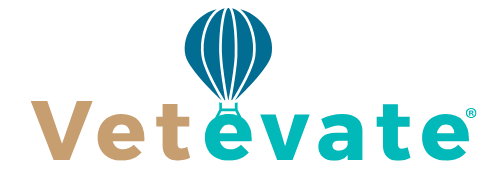When it comes to filling a job working with animals, it is crucial to pick the right candidate for the position. This is because working with animals requires a unique set of skills, knowledge, and qualities that not everyone possesses. Hiring the wrong person can lead to negative consequences, such as poor animal care, employee turnover, and even legal issues. Below are five factors for picking the right candidate when hiring for a job working with animals:
#1—Specialized skills and knowledge
Working with animals requires specialized skills and knowledge that not everyone possesses. For example, a veterinary technician needs to have a deep understanding of animal anatomy, physiology, and behavior to provide effective care to animals. Similarly, a dog trainer needs to have knowledge of animal behavior, learning theory, and communication to train dogs effectively.
Hiring someone who lacks the required skills and knowledge can lead to poor animal care and even harm to the animals. Moreover, the employee may not be able to perform their job duties effectively, leading to low productivity and reduced job satisfaction.
#2—Compassion for animals
Compassion for animals is a crucial quality for anyone working with animals. Employees who lack compassion for animals may neglect their care or treat them poorly. This can lead to physical and psychological harm to the animals, as well as legal issues for the employer.
When hiring for a job working with animals, it is essential to assess the candidate’s level of compassion for animals. This can be done by asking questions about their previous experience working with animals, their views on animal welfare, and their approach to handling animals in different situations.
#3—Emotional intelligence and self-control
Working with animals can be emotionally challenging, especially when dealing with sick or injured animals. Employees need to have emotional intelligence and self-control to handle these situations effectively. This includes being able to recognize and manage their own emotions, as well as understanding and responding to the emotions of others.
Hiring someone who lacks emotional intelligence and self-control can lead to negative consequences, such as employee burnout, poor job performance, and even harm to the animals. Moreover, employees who lack emotional intelligence may struggle to communicate effectively with coworkers and clients, leading to conflicts and reduced productivity.
#4—Communication and interpersonal skills
Effective communication and interpersonal skills are crucial for anyone working with animals. Employees need to be able to communicate effectively with coworkers, clients, and other stakeholders to ensure that the animals receive the best possible care. This includes being able to explain complex medical or behavioral issues to clients, as well as collaborating effectively with other employees to provide comprehensive care to the animals.
When hiring for a job working with animals, it is essential to assess the candidate’s communication and interpersonal skills. This can be done by asking questions about their previous experience working with animals, their approach to communicating with clients and coworkers, and their ability to work collaboratively with others.
#5—Alignment with organizational culture
Finally, it is essential to hire someone who aligns with the organizational culture of the company. This includes their values, beliefs, and attitudes towards animal care and welfare. Hiring someone who does not align with the company culture can lead to conflicts and reduced job satisfaction, as well as poor animal care and harm to the animals.
When hiring for a job working with animals, it is essential to assess the candidate’s alignment with the company culture. This can be done by asking questions about their values and beliefs related to animal care and welfare, as well as their previous experience working in similar organizational cultures.
Vetevate® has the right candidates
The Vetevate® website can be an invaluable resource for employers looking to fill jobs working with animals. The website offers a range of tools and resources that can help employers pick the right candidates for their Vetevate®:
Job postings
One of the most useful resources on the Vetevate® website is the job postings section. This section allows employers to post job listings for their Vetevate®, which can be viewed by job seekers who are interested in working with animals.
Employers can use the job postings section to provide detailed information about the job requirements, such as the required skills, knowledge, and experience. This can help to attract the right candidates for the job, who possess the necessary qualifications and experience to work with animals.
Candidate profiles
The Vetevate® website also offers a candidate profiles section, where job seekers can create profiles that highlight their skills, experience, and qualifications. Employers can use the candidate profiles section to search for candidates who meet the requirements for their Vetevate®.
Employers can use the search function to filter candidate profiles by specific skills, experience, or location. This can help to identify candidates who have the necessary skills and experience to work with animals, and who are located in the same geographic area as the job.
Skill assessments
The Vetevate® website also offers skill assessments that job seekers can take to demonstrate their skills and knowledge. These assessments can help employers to assess the skills and knowledge of job seekers who apply for their Vetevate®.
Employers can use the skill assessments to evaluate the proficiency of candidates in specific areas, such as animal care, animal behavior, or veterinary medicine. This can help to identify candidates who have the necessary skills and knowledge to work with animals and who are a good fit for the job.
Resources and tools
Finally, the Vetevate® website offers a range of resources and tools that employers can use to improve their hiring process. These resources include job posting templates, interview guides, and pre-employment screening tools.
Employers can use these resources to create effective job postings that attract the right candidates, conduct effective interviews that assess the skills and knowledge of candidates, and screen candidates effectively to identify those who are a good fit for the job.
The Vetevate® website can be an invaluable resource for employers looking to fill jobs working with animals. The website offers a range of tools and resources that can help employers pick the right candidates for their Vetevate®. By using the job postings section, candidate profiles, skill assessments, and resources and tools, employers can improve their hiring process and find the right candidates for their Vetevate®.




